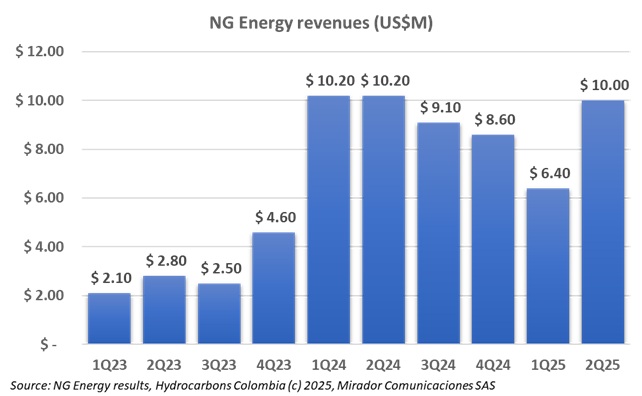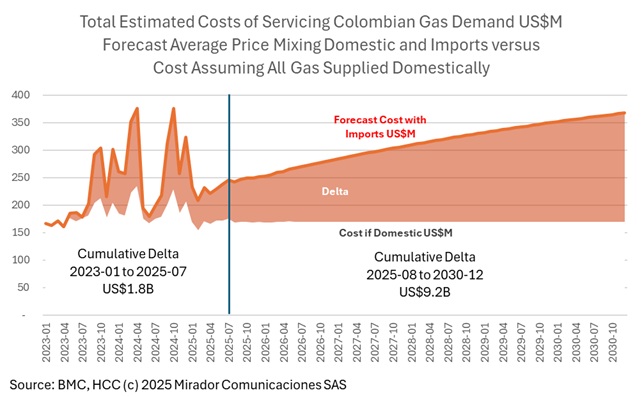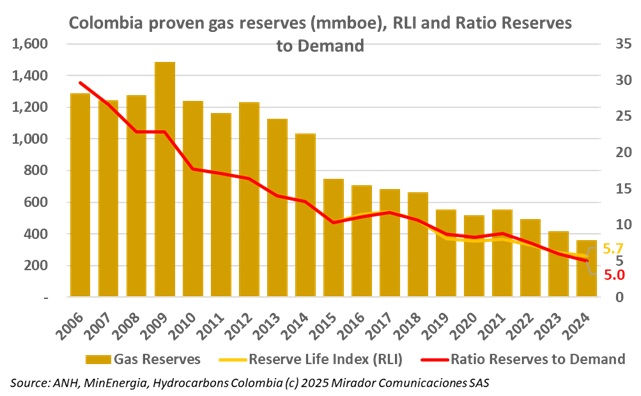
NG Energy International Corp. (TSXV: GASX) released its financial and operational results for the second quarter of 2025, highlighting both strong reserve growth and ambitious plans to expand production capacity in Colombia.
Colombia’s state-owned oil company Ecopetrol (NYSE: EC) and natural gas producer Canacol Energy (TSX: CNE) are advancing discussions that could lead to a potential acquisition.
Colombian households could see another hike in their gas bills by December, as the country becomes increasingly reliant on imports to secure supply, warned Luz Stella Murgas, president of the Colombian Natural Gas Association (Naturgas).
The Unión Sindical Obrera (USO), one of Colombia’s most powerful oil workers’ unions, is facing mounting internal tensions after its president, César Loza, openly suggested that Colombia should resume fracking to safeguard energy self-sufficiency.

Colombia’s economy could lose CoP$11.2T over the next eight years due to rising natural gas prices and dwindling domestic supply, according to a new report from Fedesarrollo.
The Amazon presidential summit in Bogotá closed with partial agreements but without the headline demand from Indigenous communities, scientists, and civil society: a ban on fossil fuel extraction in the rainforest.
The Colombian government unveiled a draft resolution aimed at ensuring natural gas supply during the scheduled maintenance of Cartagena’s regasification plant, SPEC LNG, set for October 10–14, 2025.
Propane is gaining prominence in Colombia as the country grapples with declining natural gas reserves.

The future of Colombia’s hydrocarbon sector hinges on addressing falling reserves and accelerating the development of both conventional and unconventional resources, according to Óscar Ferney Rincón, Director of the Colombian Association of Petroleum Engineers (Acipet).
In a sharply worded opinion piece, Aquiles Mercado, Vice President of Finance and Administration, warned that Colombia may be falling into what he calls “Energy hubris”, an arrogance that could cost the country its energy sovereignty.